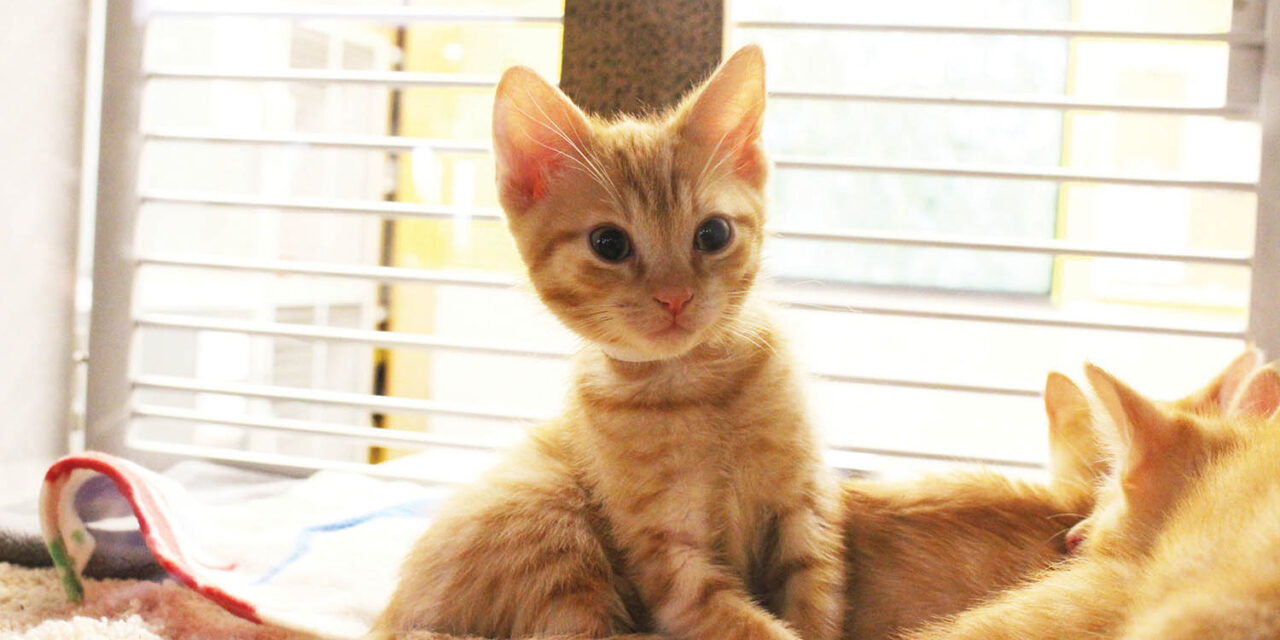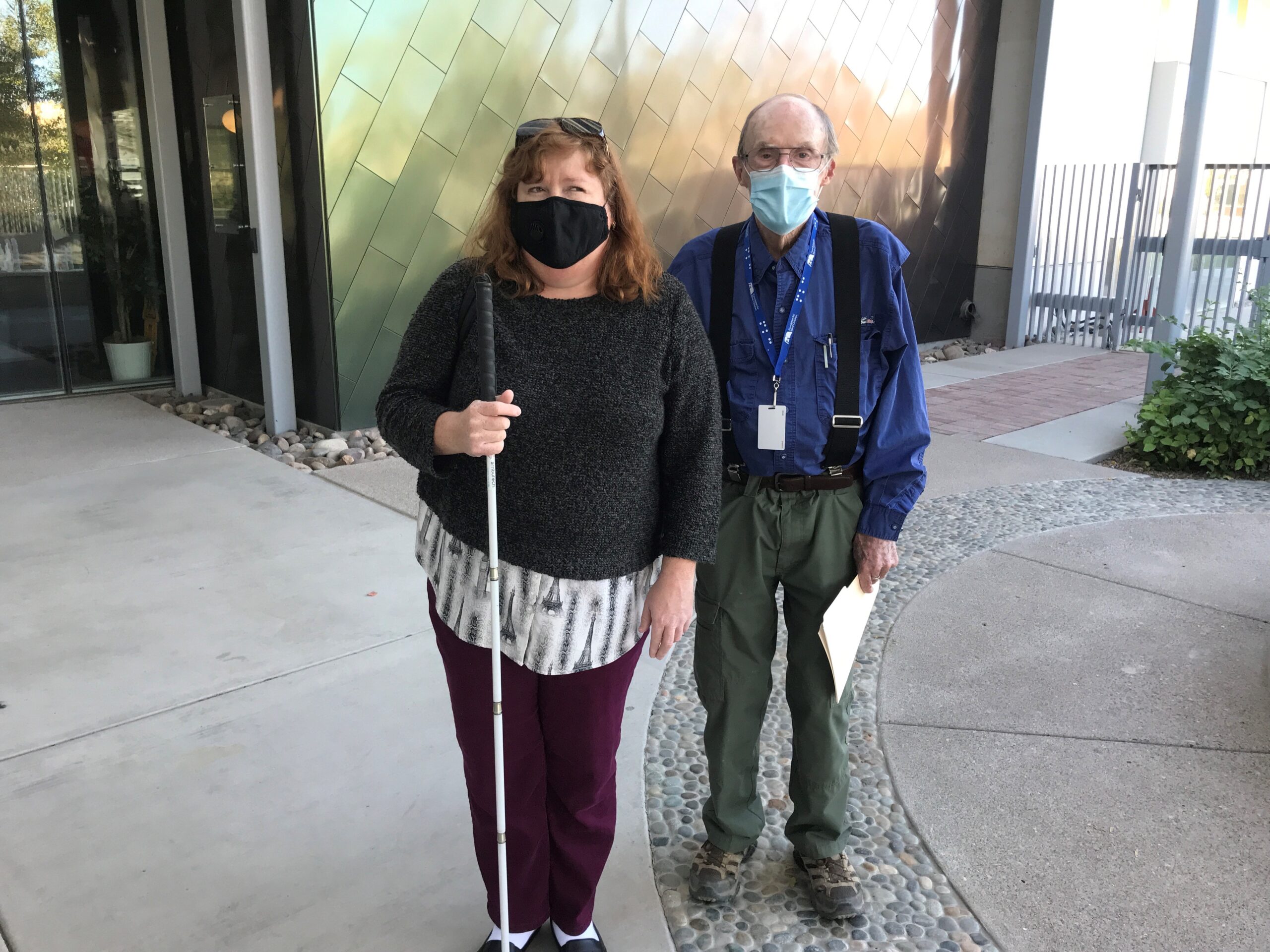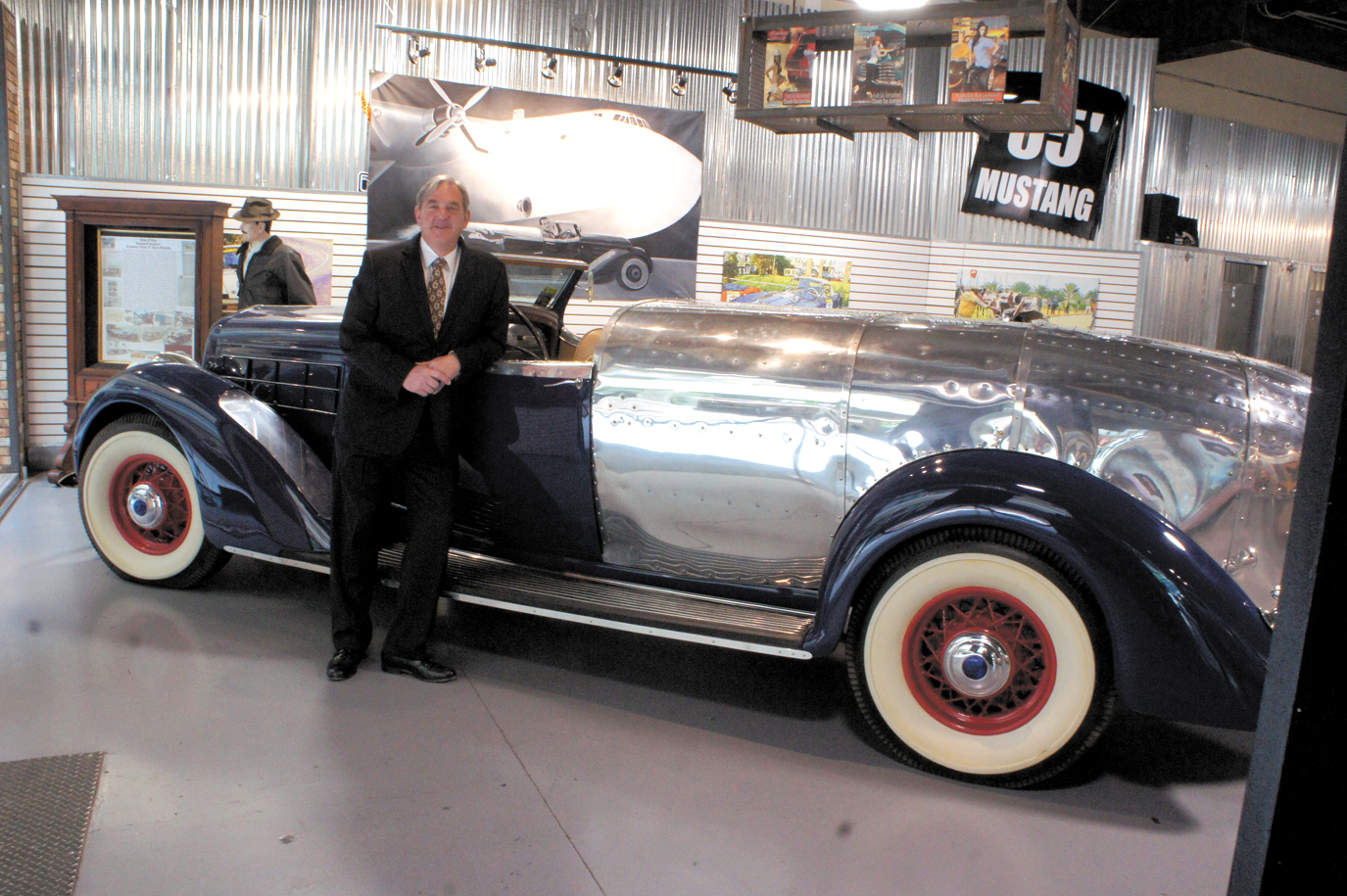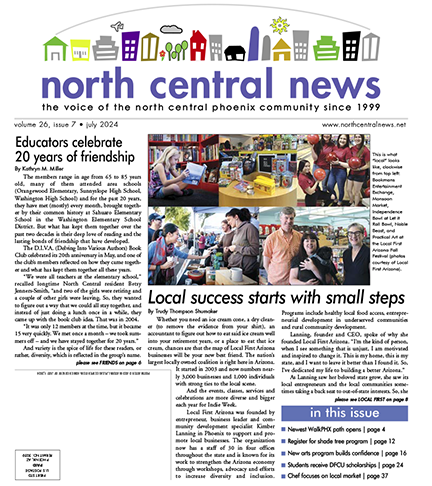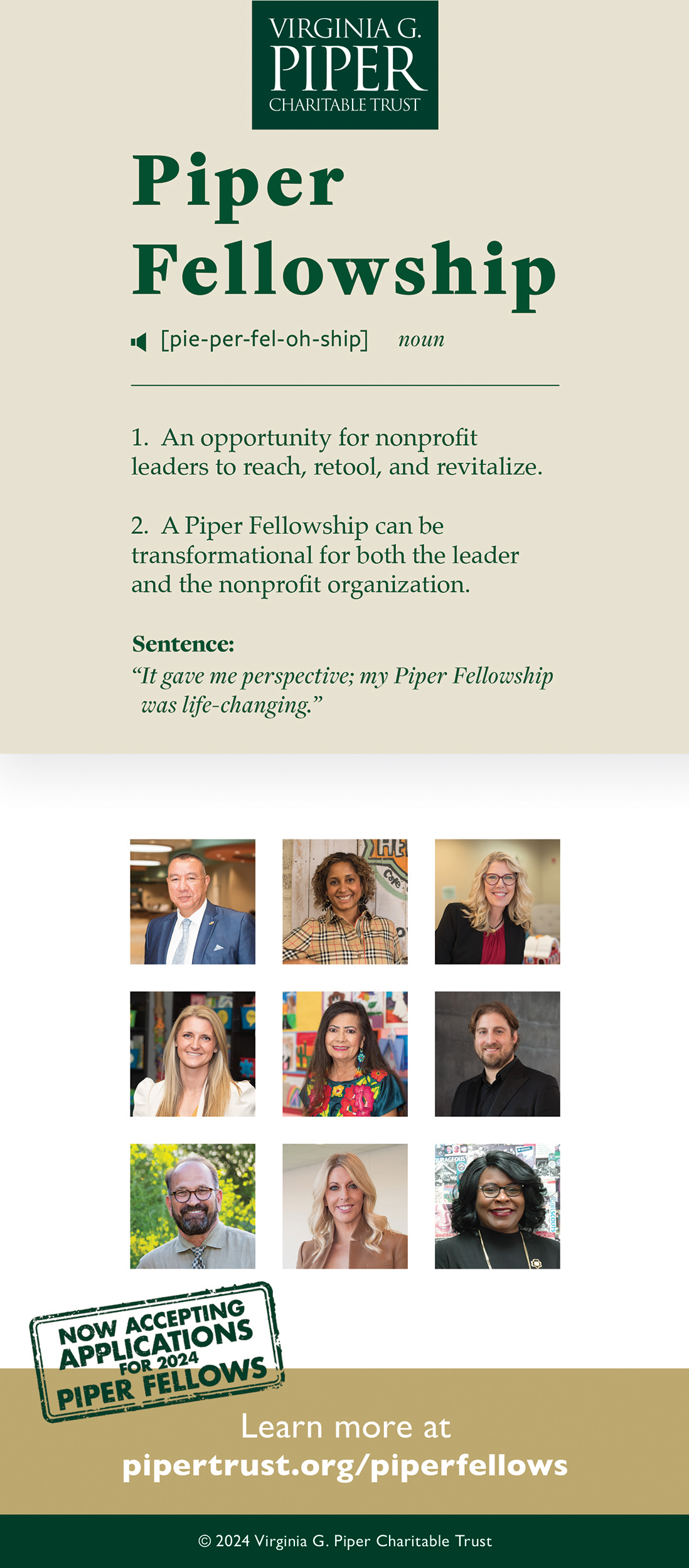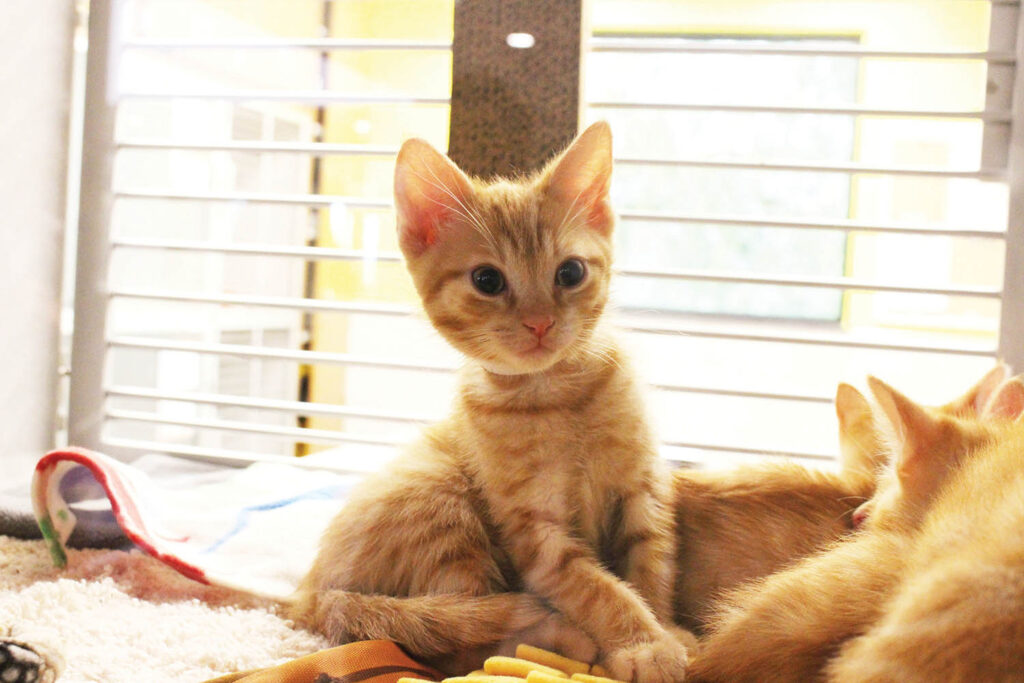
Cuteness abounds in one of the many “catios” at the newly opened Arizona Humane Society’s Rob & Melani Walton Papago Park Campus (photo by Kathryn M. Miller).
It was a busy day at the Arizona Humane Society (AHS) Sunnyslope Campus Feb. 20, as staff prepared for a massive undertaking — moving some 200 shelter animals the 15-plus miles to the new Rob & Melani Walton Papago Park Campus. With the move, intake, shelter and adoption services are no longer available in Sunnyslope.
Opened in 1957, the Sunnyslope Campus, located at 1311 W. Hatcher Road, has served hundreds of thousands of sick and injured strays, abandoned and otherwise vulnerable animals over the years. In fact, AHS serves as the biggest intake shelter in the state, and they saw 22,000 animals come through their doors in 2023 alone, 18,000 of which were treated in the hospital.
Amidst the hustle and bustle in February and again as the new hospital opened in March, AHS president and CEO Dr. Steven Hansen sat down to reflect on the history and future of the Sunnyslope campus and their new state-of-the art medical campus.
“In 1957, we were an adoption facility and over the years we developed a trauma hospital here, the most active trauma hospital in the Southwest,” Hansen said. “And that hospital treated animals that are homeless, so they can be animals that are hit by cars that don’t have homes. We do a lot of cruelty investigations. All of that activity has grown over the years. We’ve added special disease control units, we have a parvo unit here, we have a bottle baby nursery, we’ve got infectious disease wards for distemper — we treat just about anything that these homeless animals come across.”
But the facility limited AHS’ ability to control disease. Hansen added, “It’s a huge problem here. You think about our trauma hospital here, just like a kindergarten room, all the air is shared amongst everybody. So, if we get a group of dogs that come in from one of our partners around Arizona and one of those dogs brings a virus with them, like canine distemper, everybody gets sick and it’s a huge problem. The new campus is designed to manage diseases.”
Located at 5501 E. Van Buren St., the 72,000-square-foot Papago Park Campus opened its doors to the public March 6. Situated on just under 5 acres, the $46 million state-of-the-art medical campus is designed with safety and comfort in mind. Ninety percent of the pet spaces are designed with natural light, and the campus boasts 610 kennels (217 for dogs, 358 for cats and 35 for other critters), 5 fresh air “catios” and 13 play yards – and everything is transparent, open and offers a more natural environment.
AHS’ primary function is as a teaching hospital for shelter animals, Hansen says, “Everything else we do supports the hospital.” Four out of five animals who enter their doors will be treated at the Lazin Animal Foundation Trauma Hospital, with 11 ambulances available to transport sick and injured pets to the dedicated emergency room entrance.
Addressing the need to manage disease and address health and welfare needs, the campus kennels are all equipped with separate ventilation systems to prevent the spread of contagious illnesses. The dedicated ICUs have been expanded, including a parvo unit, “mutternity” suites and baby bottle unit, which is expected to see an uptick with kitten season, with staff on 24-hour bottle duty. Other wellness features include sensory gardens, acoustics that minimize noise pollution, selected paint colors and lighting that are calming and easier on pet’s eyes.
The beautiful campus also takes its employees into consideration, with plenty of natural light, the in-house Echo Coffee Shop to provide staff (and visitors) with a readily available pick-me-up, vibrant artwork throughout and relaxing spaces to help staff decompress from what can sometimes be difficult work.
This is not the end of the story for the Sunnyslope facility, however. Work has already begun on the expansion of the Marge Wright Veterinary Public Veterinary Clinic, which will still provide some services as remodeling work is completed over the next year.
“Sunnyslope has been very important to us,” Hansen said. “It’s gotten rather emotional over the last few months—we’ve enjoyed it here; it’s been a good location for the trauma hospital. We’re not leaving, we’re growing and changing what the emphasis is here.”
The hospital that is on the front of the building is going to move into the old trauma hospital, allowing the building to be gutted and remodeled. It will then reopen as a much larger, full-service veterinary hospital for the community–right now, the clinic only offers spay, neuter and vaccine services.
With the Sunnyslope location no longer taking in sick or injured strays, residents are encouraged to contact the AHS Pet Resource Center at 602-997-7585, Ext. 3800, for guidance. Hansen added that their call center took 10,000 calls in the month of January, and a lot of those calls were, “how can I keep my pet?” AHS has seen a big increase in the number of not only strays but abandonments in recent years, and they can help residents who are facing financial struggles or housing insecurity find resources to help them keep their pets. Their resource webpage is a good place to start: www.azhumane.org/resources-to-keep-your-pet.
In addition to AHS’ 400 employees, the organization’s mission is accomplished through the help of an army of volunteers, and as kitten season approaches, foster parents are in particular demand.
“Foster homes are probably the most important thing right now,” Hansen said. “There are kittens in the Papago Park nursery currently, but “over the next few weeks it’s going to become really busy. We’ll start ramping up with more staff members 24/7 and more volunteers 24/7. That’s because it’s full-blown kitten breeding season — it starts in March and doesn’t end until November.”
As kittens come in, they are stabilized and then sent out to foster homes and partner organizations to make room at the shelter until the kittens are ready to go back for sterilization and adoption.
Residents who are interested in becoming a foster parent or volunteering in another capacity can visit www.azhumane.org/become-a-volunteer. And, of course, AHS always has hundreds of pets looking for forever homes. Visit www.azhumane.org/adopt to find a dog, cat or bunny that would be a good fit to join your family.

